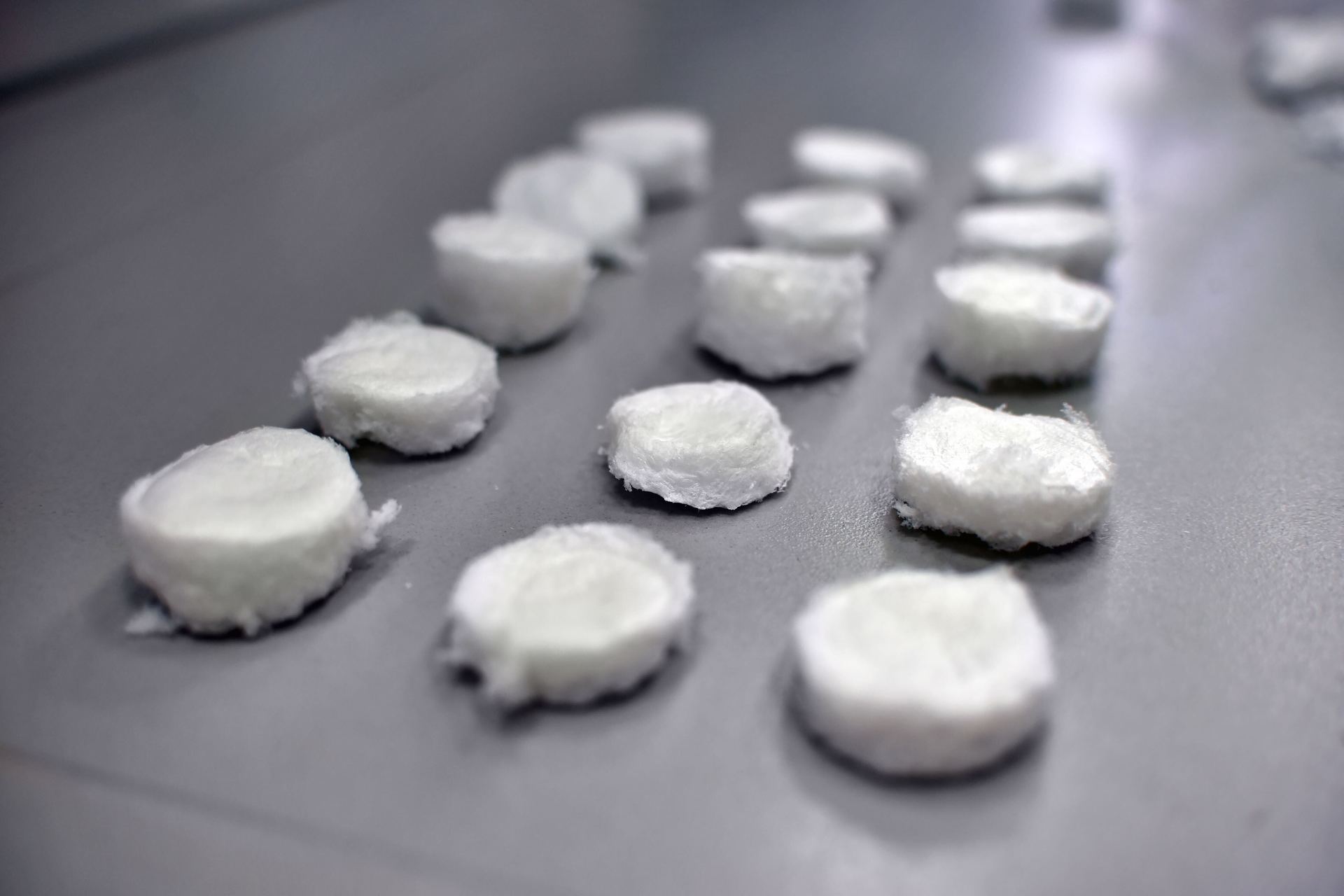Scientists from the Mordovian State University (MSU) named after.
N.P.
Ogaryov developed a highly effective sorbent based on cellulose ethers.
This was reported to RT in the press service of the Russian Ministry of Education and Science.
The study was carried out within the framework of the strategic project "New Generation Materials and Energy Saving" of the program of the Russian Ministry of Education and Science "Priority-2030".
The new material has already been patented for the adsorption of oil and oil products.
However, it can also be used to adsorb water and other liquids, the scientists note.
Thus, it is proposed to use a biodegradable sorbent as a filler for baby diapers, as well as in agriculture, landscape design and gardening, since the material can store water in large volumes and, if necessary, release it, maintaining optimal soil moisture.
The introduction of the development into industrial production is scheduled for 2023.
Chemists suggested using an organic airgel, which was called BioLife, as the basis for a new sorbent.
Recall that aerogels are a class of materials in which the liquid phase is completely replaced by the gaseous one.
Produced organic aerogels
© Press Service of the Ministry of Education and Science of Russia
As the authors of the work explained, structurally, aerogels are a tree-like network of clustered nanoparticles 2–5 nanometers in size and pores up to 100 nanometers in diameter.
Scientists have managed to develop a unique technique for obtaining airgels, which makes it possible to do without expensive and time-consuming technologies, such as supercritical drying (the main and most difficult stage in the production of airgels from ordinary gels, during which the pores are filled with gas).
If the production of airgels using traditional technology takes from 20 to 40 hours, then using the new method, you can get the right substance in just 2.5 hours.
“The time is reduced due to the fact that we “eliminated” some of the stages that are present in the production of the airgel.
Under our conditions, during gelation, a porous structure is formed, from which moisture is removed simply by thermal drying, ”said the head of the Department of Inorganic and Analytical Chemistry at Moscow State University in an interview with RT.
N.P.
Ogaryova, regional representative of the world-class scientific and educational center "Engineering of the Future" candidate of chemical sciences Alexander Dolganov.
Study of water absorption by synthesized organic aerogels
© Press Service of the Ministry of Education and Science of Russia
The scientists subjected the resulting airgel to further chemical modification, as a result of which they obtained an effective sorbent.
“Modification can be carried out both on the surface and throughout the volume of the airgel.
Thus, knowing the requirements for the superabsorbent, we developed an approach and obtained a material with the required characteristics.
The proposed sorbent has a developed, controlled porous structure, which allows you to collect a large amount of liquid in a short time (from 10 to 30 seconds).
At the same time, the sorbent does not turn into a gel, like analogues, but it swells while maintaining its original solid form,” explained Alexander Dolganov.
The scientist added that due to the large number of pores, the new sorbent is able to effectively retain water even under physical influences - pressure, twisting, etc.
According to the authors of the study, the relevance of developing domestic materials for hygiene products has grown against the backdrop of anti-Russian sanctions.
In addition, many of the synthetic supersorbents that are used today in the manufacture of diapers decompose very slowly and cause environmental damage.
The new material created by Russian chemists is safe for the environment.
“Due to its unique properties, when found in nature, the sorbent is capable of self-decomposition.
Decomposition products are absolutely harmless and are water and carbon dioxide,” said Alexander Dolganov.

